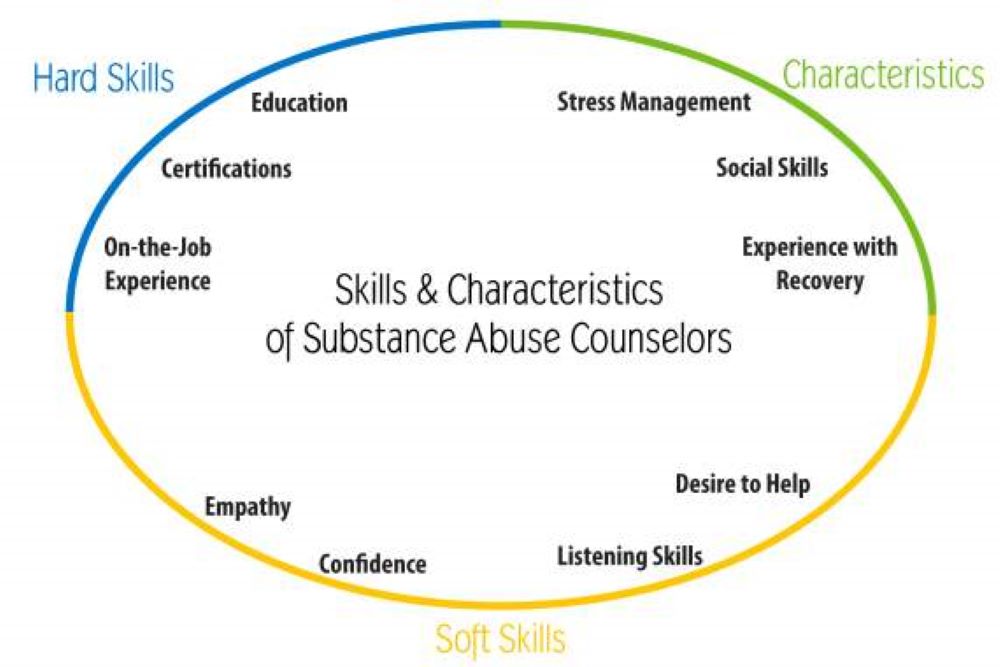Chemical dependency is when a person becomes dependent or addicted to drugs or alcohol. This is considered a serious social issue, especially since there are a lot of people who experience it.
When a person is addicted to drugs and alcohol, it impacts their finances, neglects themselves, and their relationship with their family and people around them is damaged. This is where a chemical dependency counselor comes in.
Not all can be a chemical dependency counselor. Just like other professions, you must have what it takes to be one. Here is the list of traits of a chemical dependency counselor.

What Does A Chemical Dependency Counselor Do?
Chemical dependency counselors are the professionals that address how alcohol and drugs affect both the physical, emotional and social aspects of a person.
It is their responsibility to help find the root cause of why the person became addicted and deliver therapies and other interventions. With the counselor’s help and assistance, the patients may find ways to deal with their addiction.
Aside from working with the patients, the chemical dependency counselors may also work with the patient’s family and friends or other support systems to help them cope and better understand the rehabilitative process.
They can also make referrals to healthcare providers and other treatment programs.
Traits Of A Chemical Dependency Counselor
The traits of chemical dependency counselors are divided into two categories: hard skills and soft skills. We will firstly look at the hard skills needed to become a chemical dependency counselor, and after that, we dive into the soft skills.
Hard Skill – Education And Training
To become a chemical dependency counselor, having a formal education with a certification on the related degree in mental health is ideal. Depending on the setting, some institutions may only require a Bachelor’s Degree while some need a Master’s or even a Doctorate.
Besides formal education, having experience in this field is good because it is where skills are honed. In school, there are required hours that need to be completed for training and to get a certification.
To formally practice this profession, becoming a licensed substance abuse counselor is necessary. Those who have a Master’s degree can get a license.
A licensed chemical dependency counselor is expected to have a formal education, with training and earned certifications plus on-the-job experience.

Soft Skill – Confidence
As a counselor, you will meet a lot of people who have different personalities. Confidence is a necessary trait to have in this profession because it will allow you to communicate effectively with the patients.
In being confident, you can show your client that you are the right person to make the situation better as long as there is cooperation. With this, you assure them that you are an effective instrument to help them deal with their concerns.
Soft Skill – Great Listening Skills
To help determine the best course of action with the client’s concerns, listening skills are essential to understand their concerns better. Before you can jump in with the solution, clients will feel heard, understood, and validated through active listening.
Without this, there is a possibility that you will not be able to understand the client and may lead to an incorrect resolution.
Soft Skill – Empathy
You may not be able to relate with what the client is going through personally, but at least there is an acknowledgement that someone understands what they feel. If the client feels empathy, it’s easier for them to open up without the fear of being judged.
Showing simple cues of showing interest and giving them words of support and encouragement will help the client be comfortable in engaging with you.
Soft Skill – Desire To Help Others
A chemical dependency counselor is a helping profession. Aside from being knowledgeable about the processes needed to help in treatment and recovery, it is still important that you have the desire to help.
If you are sincere with what you are doing, then it will show in your actions. This profession gives a rewarding experience if your main agenda is to help and earn money.
Conclusion
The soft skill traits of a chemical dependency counselor are not necessary characteristics, but it is a critical factor in determining how the counselor will perform his/her duty. These traits and the educational background are the keys to helping the patient come up with the best resolution to find the best versions of themselves.





